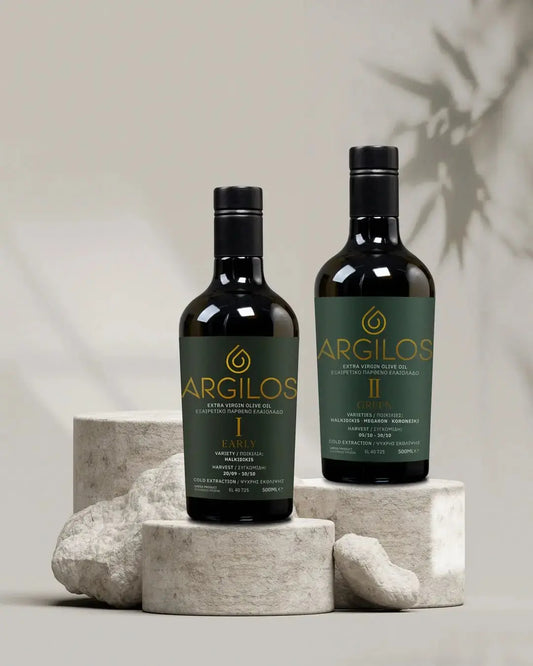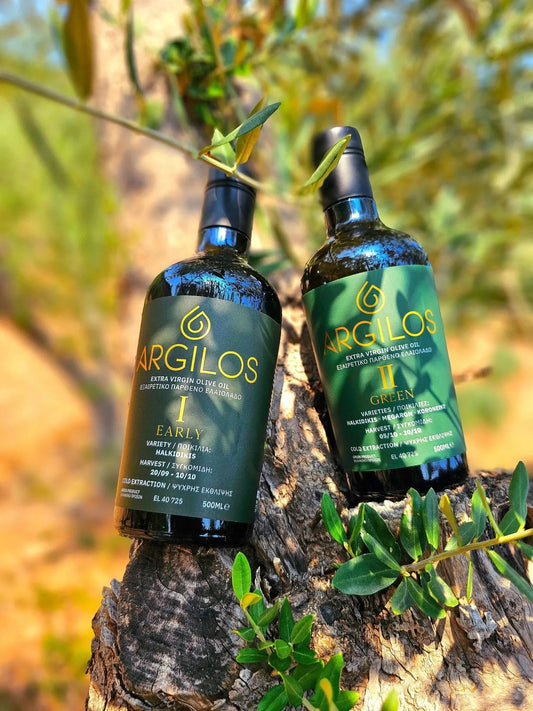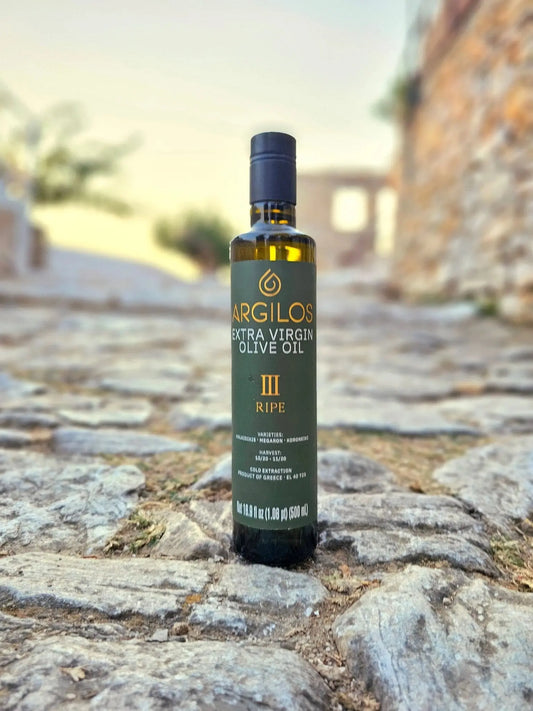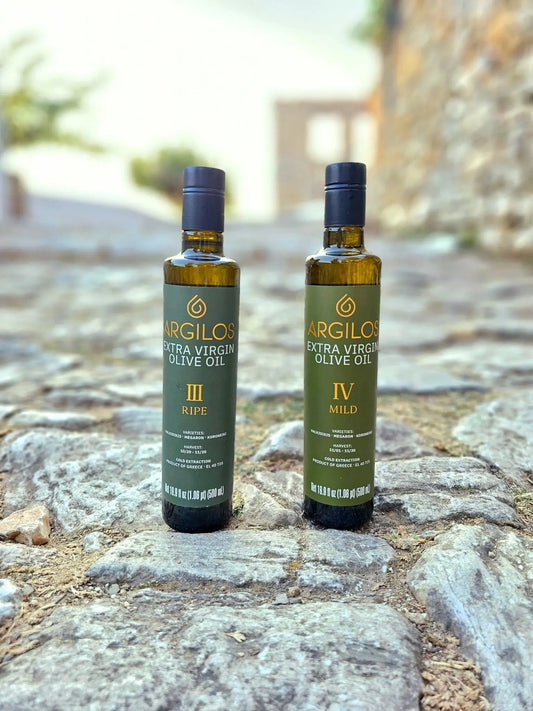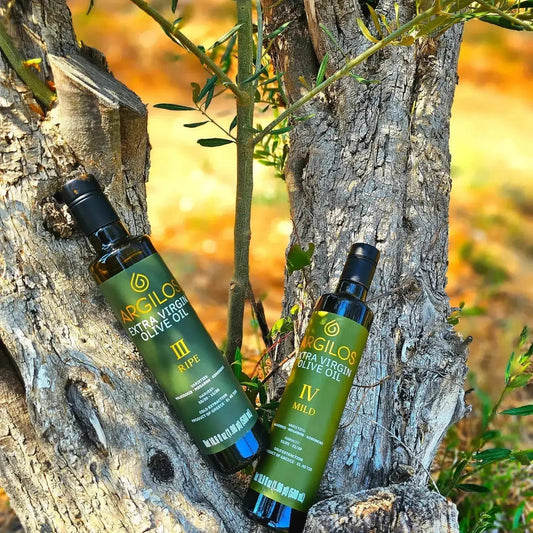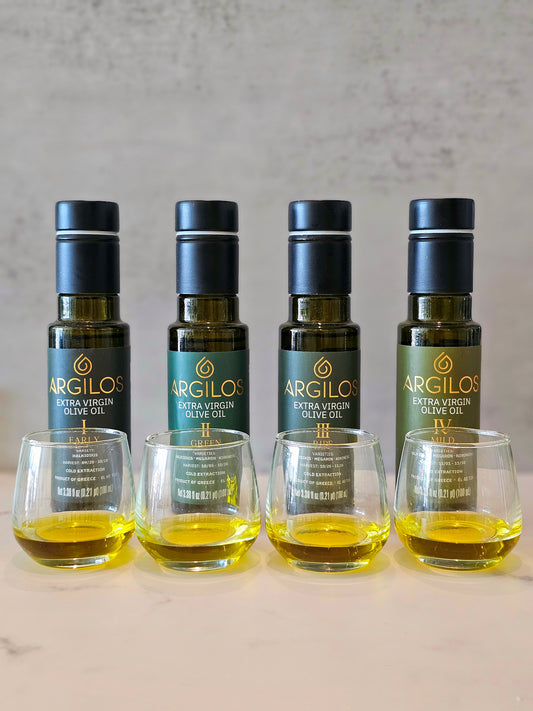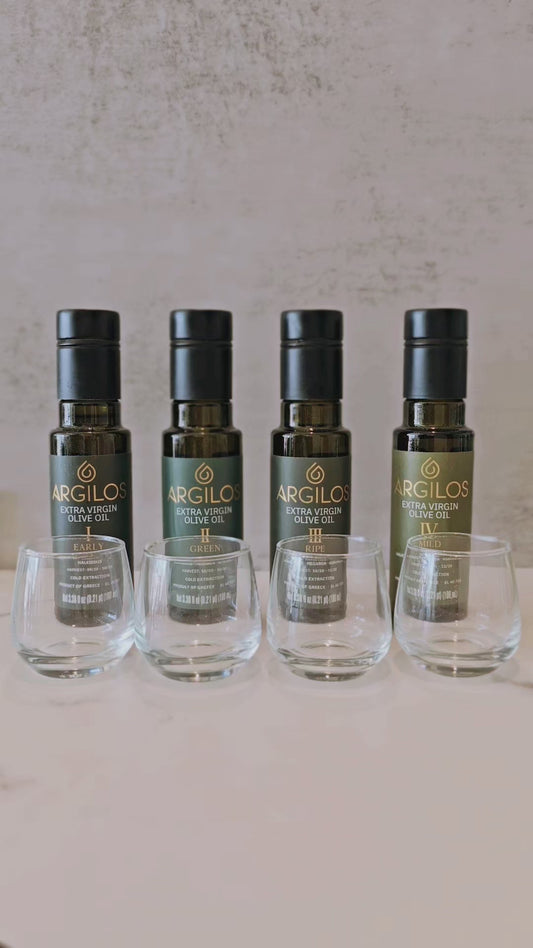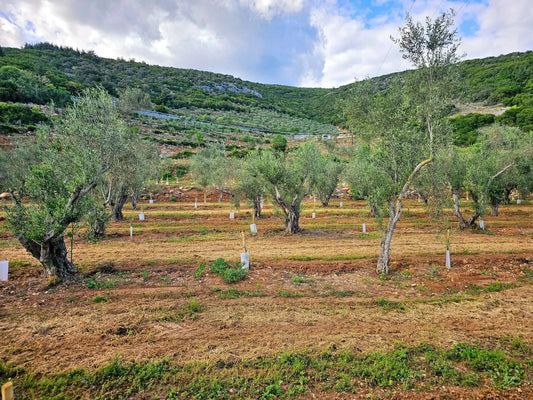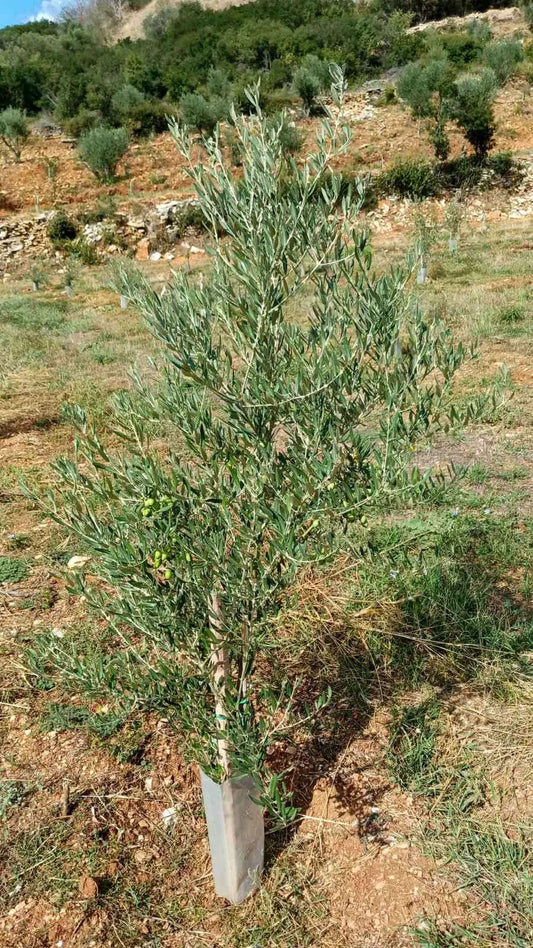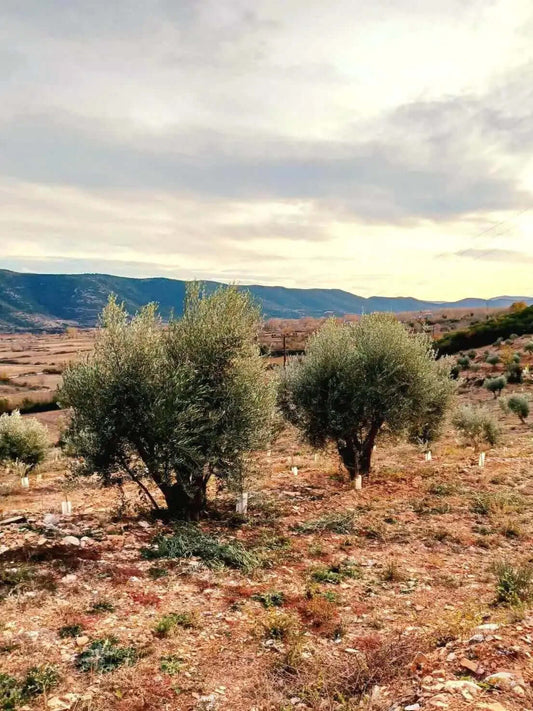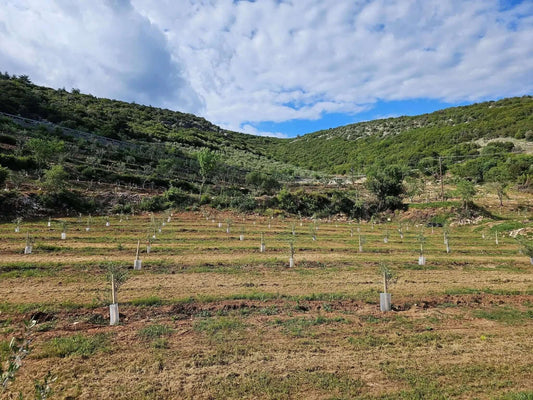Is Olive Oil Vegan? Explore The Truth of Olive Oil
Share
Key Takeaway
- Olive oil is completely vegan as it's extracted directly from olives without any animal products or byproducts involved in the production process. Extra virgin olive oil, being the purest form of olive oil, is entirely plant-based and suitable for all vegan diets
- Ethical considerations around olive oil production methods may influence some vegans' purchasing decisions
_____________________
“Is olive oil vegan?” This question frequently arises among those transitioning to plant-based diets or chefs exploring vegan cooking options. The straightforward answer is yes—olive oil is completely vegan and represents one of the most versatile and healthiest plant-based fats available for cooking and finishing dishes. Understanding the production process, different varieties, and ethical considerations surrounding olive oil can help you make informed decisions for your vegan kitchen.
Olive oil has been a cornerstone of Mediterranean cuisine for thousands of years, and its plant-based nature makes it an excellent choice for vegan cooking. From sautéing vegetables to creating elegant finishing oils for salads, olive oil provides the rich flavors and healthy fats that vegan diets require. As more people embrace plant-based eating, understanding which ingredients align with vegan principles becomes increasingly important for both home cooks and professional chefs.
What Makes a Food Product Vegan?
Before diving into olive oil specifically, it's essential to understand what qualifies a product as vegan. Vegan products contain no animal-derived ingredients, including meat, dairy, eggs, honey, gelatin, or any other substances that come from animals. Additionally, many vegans consider the production process, ensuring that no animal exploitation occurs during manufacturing.
The vegan classification extends beyond obvious animal products to include less apparent ingredients like certain food colorings, processing aids, or additives that may have animal origins. This comprehensive approach to veganism ensures that every aspect of food production aligns with ethical plant-based principles.

For cooking oils specifically, vegan status depends entirely on the source material and processing methods. Plant-based oils derived from olives, avocados, coconuts, nuts, and seeds are inherently vegan, while any oil containing animal fats would not qualify. The extraction and refining processes for plant-based oils typically involve mechanical pressing or chemical extraction methods that don't require animal products.
Is Olive Oil Vegan? The Complete Answer
Olive oil is entirely plant-based, derived exclusively from the fruit of olive trees through mechanical pressing or centrifugal extraction methods. No animal products, byproducts, or processing aids are involved in traditional olive oil production, making it suitable for all vegan diets.
The production process begins with harvesting olives at various stages of ripeness, depending on the desired flavor profile. These olives are then washed, crushed, and pressed to extract the oil. Modern olive oil production typically uses centrifugal force to separate the oil from water and olive solids, a completely mechanical process that maintains the vegan integrity of the final product.
Traditional olive oil mills, such as Argilos Olive Mill, employ time-honored methods that have remained essentially unchanged for centuries. These techniques rely purely on mechanical pressure and natural separation processes, ensuring that the olive oil remains completely plant-based throughout production.
Understanding Different Types of Olive Oil
All legitimate olive oil varieties maintain their vegan status regardless of processing level. Today olive oil is produced without any involvement of animals or animal by products, therefore, it aligns with the principles of veganism. Extra virgin olive oil represents the highest quality and most minimally processed option, while virgin olive oil undergoes slightly more processing but remains purely plant-based.
The refining process for lower-grade olive oils may involve filtering, heating, and chemical treatment to improve stability and flavor neutrality. However, these processes use plant-based or synthetic chemicals rather than animal-derived substances, maintaining the vegan integrity of the final product.
Light olive oil, despite its name referring to flavor rather than caloric content, is also vegan. This highly refined olive oil undergoes extensive processing to create a neutral-tasting oil suitable for high-heat cooking, but the refining process doesn't introduce any animal-derived ingredients or processing aids.
Olive Oil for Different Vegan Approaches
Generally, olive oil is suitable for most variations of plant-based eating, but some specific dietary approaches within the vegan community may have additional considerations. Some vegans follow whole food plant-based diets that emphasize foods in their whole, intact forms found in nature and restrict processed foods such as oil, sugar, or salt.
Oil-free vegans choose to eliminate all extracted oils from their diets, preferring to get fats directly from whole foods like avocados, nuts, and seeds. While olive oil remains technically vegan, it doesn't align with their specific dietary approach that emphasizes whole food sources of nutrition.
Most mainstream vegan diets enthusiastically embrace olive oil as a healthy, plant-based fat source that provides essential fatty acids and enhances the absorption of fat-soluble vitamins. The Mediterranean diet's heavy reliance on olive oil, combined with extensive research showing its health benefits, makes it a popular choice among health-conscious vegans.
Ethical Considerations for Vegan Olive Oil Consumption
While olive oil is indisputably vegan from an ingredients perspective, some ethical vegans consider the broader environmental and social impacts of olive oil production. Some vegans find the olive farming processes too exploitative for the environment, as mass cultivation requires large amounts of water and land, which can put a strain on natural resources.

Organic olive oil production avoids synthetic pesticides and fertilizers, reducing environmental impact and potential harm to wildlife. Many conscious consumers prefer organic options to ensure their food choices support ecological health and biodiversity preservation.
Labor practices in olive oil production vary significantly by region and producer. Ethical consumers might research specific brands and producers to ensure fair wages and working conditions for agricultural workers. Nostos Goods emphasizes sustainable and ethical production practices that align with conscious consumer values.
Climate change impacts on olive oil production represent another consideration for environmentally conscious vegans. Supporting producers who implement sustainable farming practices and adapt to changing environmental conditions helps ensure the long-term viability of olive oil production.
How to Choose the Best Vegan Olive Oil for Your Kitchen
Selecting high-quality olive oil enhances both the nutritional value and flavor profile of vegan dishes. Extra virgin olive oil, especially Argilos - Extra Virgin Greek Olive Oil, offers the highest nutritional content and most complex flavors, making it ideal for finishing dishes, salad dressings, and low-heat cooking applications. The antioxidants and polyphenols found in high-quality extra virgin olive oil provide significant health benefits that complement vegan dietary goals.

For high-heat cooking applications, refined olive oil or light olive oil provides better stability while maintaining vegan status. These oils have higher smoke points that prevent the formation of harmful compounds during cooking, making them suitable for sautéing, roasting, and other high-temperature cooking methods.
Our Argilos Ultimate Bundle offers an excellent opportunity to experience different olive oil varieties and understand how various processing methods and harvest times affect flavor profiles. This variety pack allows home cooks to discover which olive oil types best complement their vegan cooking style.
Consider purchasing olive oil in appropriate quantities to ensure freshness. Olive oil can become rancid over time, especially when exposed to light, heat, and air. Storing olive oil properly in dark containers away from heat sources helps maintain quality and nutritional content.
Conclusion
The answer of “Is olive oil vegan?” remains unequivocally yes. Olive oil represents one of the most versatile, healthy, and delicious plant-based fats available to vegan cooks and chefs. From extra virgin varieties perfect for finishing dishes to refined options suitable for high-heat cooking, olive oil provides endless possibilities for creating flavorful vegan meals.
Understanding the production processes, quality grades, and ethical considerations surrounding olive oil empowers vegans to make informed choices that align with their dietary and ethical principles. Whether you're following a standard vegan diet, raw vegan approach, or whole food plant-based lifestyle, there are olive oil options that can enhance your culinary experience while supporting your health goals.
The rich tradition of olive oil production, combined with modern sustainable practices, ensures that this ancient food remains a cornerstone of plant-based nutrition. By choosing high-quality, ethically produced olive oil, vegan cooks can create delicious, nutritious meals while supporting sustainable agricultural practices and environmental stewardship.
FAQs
Q: Is extra virgin olive oil vegan?
A: Yes, extra virgin olive oil is completely vegan and represents the purest form of olive oil available. It's extracted at temperatures below 27°C through purely mechanical means without any animal products or byproducts.
Q: Is olive oil vegan friendly for all plant-based diets?
A: While olive oil is technically vegan, some plant-based dieters avoid it. Whole food plant-based and oil-free vegans eliminate processed oils, but most mainstream vegan diets embrace olive oil as a healthy plant-based fat source.
Q: Is olive oil mayo vegan?
A: Traditional mayonnaise contains eggs and isn't vegan, but vegan mayonnaise made with aquafaba and olive oil is completely plant-based. Always check ingredient labels on commercial products for any hidden animal-derived ingredients.
Q: Is olive oil raw vegan?
A: Cold-pressed extra virgin olive oil qualifies as raw vegan because it's processed below the raw food threshold of 104-118°F. However, refined olive oils may exceed temperature thresholds that raw foodists accept.
Q: Is all olive oil automatically vegan?
A: Yes, all legitimate olive oil is vegan as it's extracted purely from olives without any animal products. However, always check labels on flavored or specialty olive oil products for added non-vegan ingredients.
Q: Can vegans use olive oil for high-heat cooking?
A: Yes, vegans can use refined olive oil or light olive oil for high-heat cooking applications. These varieties have higher smoke points that make them suitable for frying and roasting while maintaining their vegan status.
Q: Does the olive oil production process involve any animal products?
A: No, traditional olive oil production uses purely mechanical extraction methods involving pressing, centrifugal separation, and filtering. No animal products, byproducts, or animal-derived processing aids are used in legitimate olive oil production.
Q: Is organic olive oil better for vegans than conventional olive oil?
A: Both organic and conventional olive oil are vegan, but organic varieties avoid synthetic pesticides and fertilizers. Many vegans prefer organic options for environmental and health reasons, though both remain completely plant-based.
Q: What temperature destroys enzymes in olive oil for raw vegans?
A: Raw foodists believe that heating food above 104-118°F (40-48°C) destroys beneficial enzymes. Cold-pressed extra virgin olive oil is processed below these temperatures, making it suitable for raw vegan diets while maintaining its natural enzyme content.
References
-
Healthline. (2020). "12 Benefits and Uses of Cold Pressed Olive Oil." Retrieved from https://www.healthline.com/nutrition/cold-pressed-olive-oil
-
Healthline. (2023). "The Raw Vegan Diet: Benefits, Risks and Meal Plan." Retrieved from https://www.healthline.com/nutrition/raw-vegan-diet
-
Cleveland Clinic. (2021). "Raw Food Diet: Is It Healthier?" Retrieved from https://health.clevelandclinic.org/raw-food-diet-is-it-healthier
-
Wikipedia. (2025). "Raw foodism." Retrieved from https://en.wikipedia.org/wiki/Raw_foodism
-
ScienceDaily. (2025). "Raw food diet." Retrieved from https://www.sciencedaily.com/terms/raw_food_diet.htm
-
Minnesota Department of Health. "Temperature and Time Requirements for Food." Retrieved from https://www.health.state.mn.us/communities/environment/food/docs/fs/timetempfs.pd

